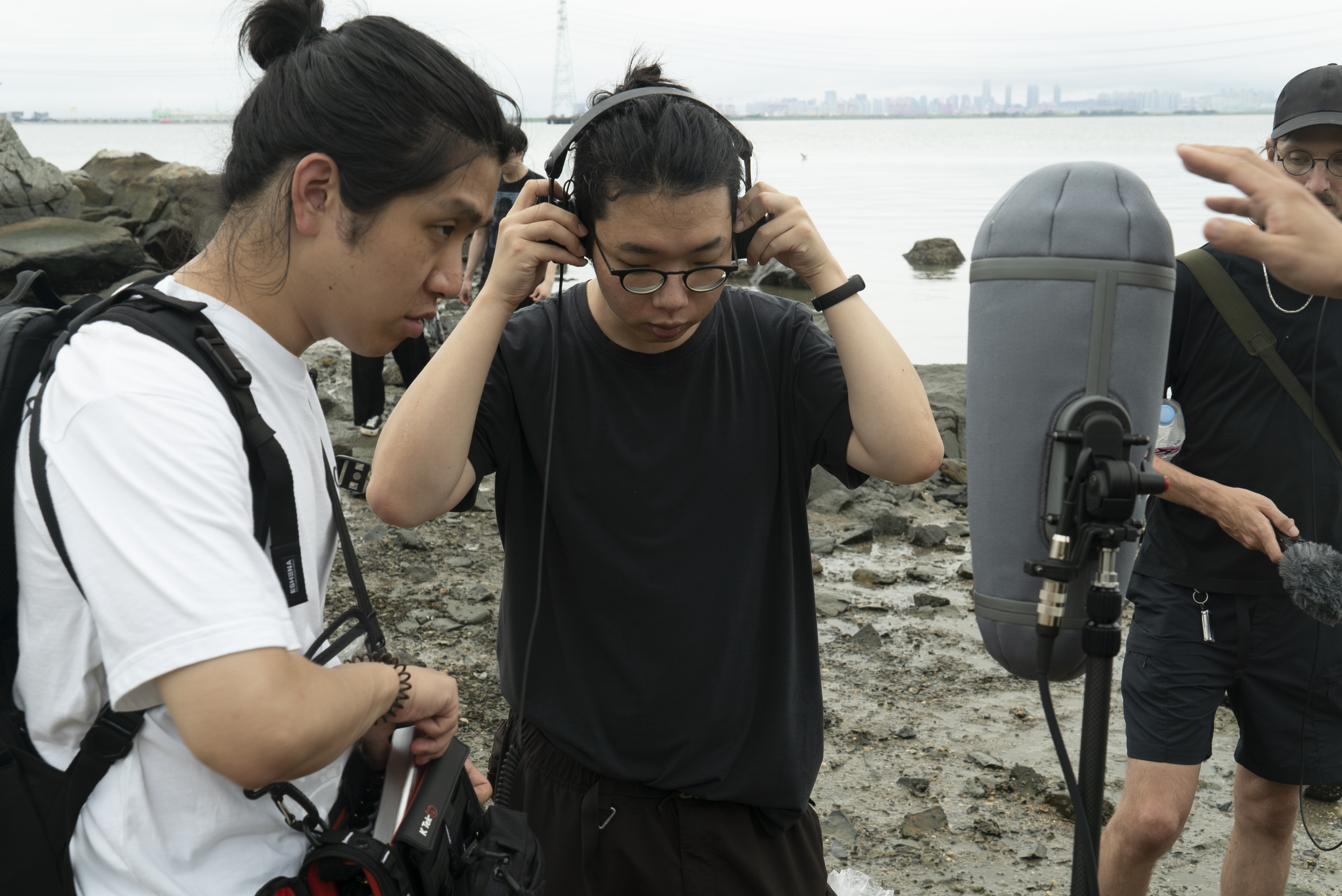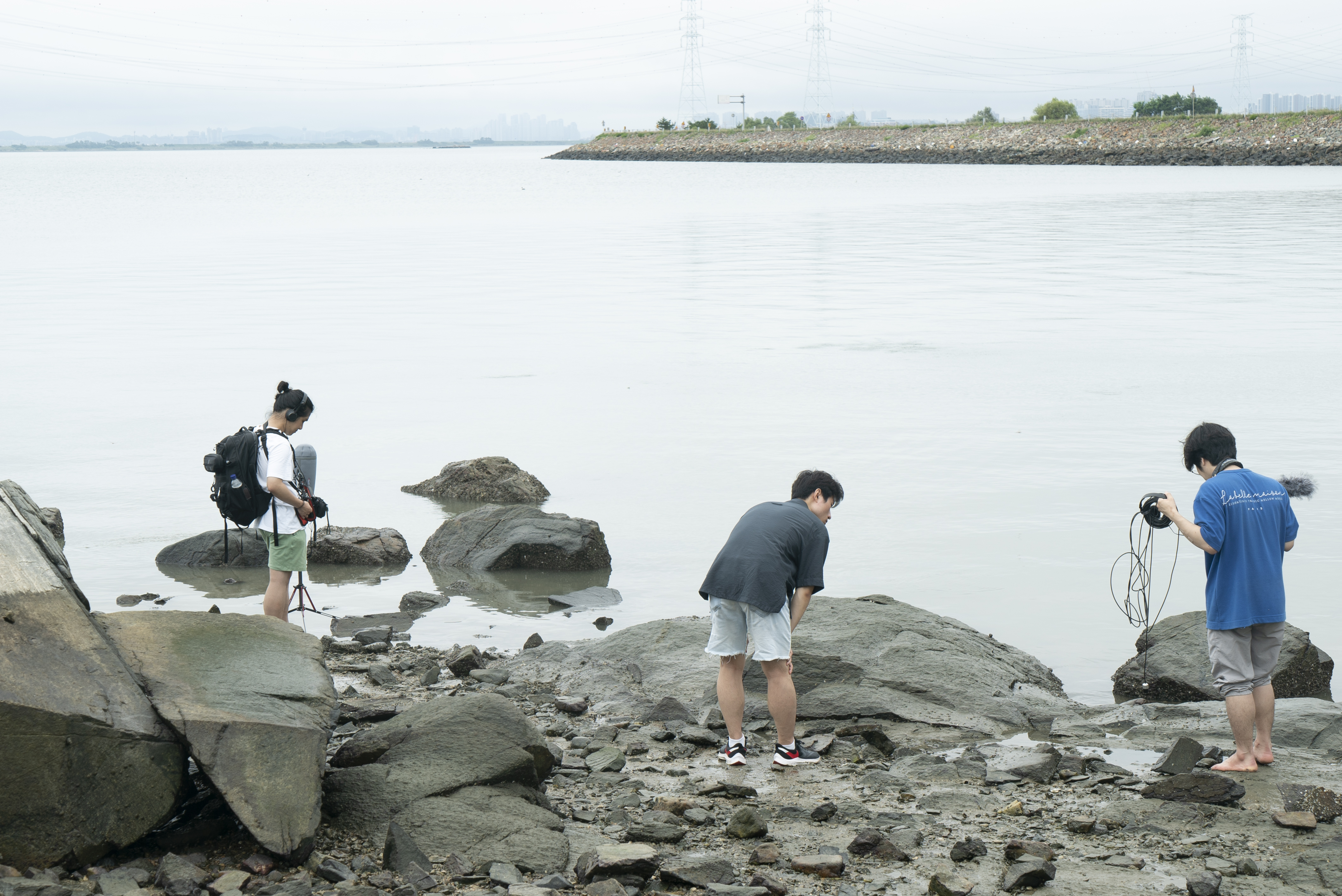Title of Writing
마예니
Yeni Ma
Ten participants, including sound artists, musicians, visual artists, filmmakers, and landscape designers, will come together under the theme of 'Into the (re)wild' to explore the sound of the ecology within Sihwa Lake. We will delve into the interplay of pollution and life, artificiality, and nature, as we investigate the re-wilding process in this part of Sihwa Lake.
Workshop made and guided by ︎ Unknown Kim
Organisation︎ Getbol Lab, Sihwa Lake Saver, Delightfull
Organisation︎ Getbol Lab, Sihwa Lake Saver, Delightfull
Location ︎ Online, and at Daesong Wetland (within Sihwa Lake) in Daebu-Do, Ansan-si, Gyeonggi-Do, South Korea
Time ︎ 2023.07.21 (online), 2023.07.23 14:00-18:00 (offline at Sihwa Lake)
Time ︎ 2023.07.21 (online), 2023.07.23 14:00-18:00 (offline at Sihwa Lake)










The Sihwa Lake is an artificial reservoir completed in 1994, to supply fresh water to the surrounding farmlands and industrial areas. However, after its completion, the water quality rapidly deteriorated due to the inflow of domestic sewage from the nearby expanding city and industrial facilities. Despite its name, which translates to '(si)finally-(hwa)bright lake,' it gained the unfortunate reputation of being known as the 'Lake of Death.'
In 2000, the government abandoned the idea of maintaining Sihwa Lake as a reservoir and instead opted to discharge polluted water into the ocean. Simultaneously, they established a tidal power plant that utilises the tidal difference to generate hydroelectric power. Over the past two decades, the ecosystem of Sihwa Lake has adapted to this artificial ebb and flow rhythm.
This time, the Acoustic Territories field trip takes place at the Dae-song Wetland, which provides the opportunity to observe the ecosystem within the tidal area of the artificial Sihwa Lake. This area is currently off-limits to the public and serves as a habitat for migratory birds and terrestrial wildlife. Unlike the polluted waters of Sihwa Lake, this wetland has quickly recovered its vitality.
Ten participants, including sound artists, musicians, visual artists, filmmakers, and landscape designers, will come together under the theme of 'Into the (re)wild' to explore the sound of the ecology within Sihwa Lake. We will delve into the interplay of pollution and life, artificiality, and nature, as we investigate the re-wilding process in this part of Sihwa Lake.
In 2000, the government abandoned the idea of maintaining Sihwa Lake as a reservoir and instead opted to discharge polluted water into the ocean. Simultaneously, they established a tidal power plant that utilises the tidal difference to generate hydroelectric power. Over the past two decades, the ecosystem of Sihwa Lake has adapted to this artificial ebb and flow rhythm.
This time, the Acoustic Territories field trip takes place at the Dae-song Wetland, which provides the opportunity to observe the ecosystem within the tidal area of the artificial Sihwa Lake. This area is currently off-limits to the public and serves as a habitat for migratory birds and terrestrial wildlife. Unlike the polluted waters of Sihwa Lake, this wetland has quickly recovered its vitality.
Ten participants, including sound artists, musicians, visual artists, filmmakers, and landscape designers, will come together under the theme of 'Into the (re)wild' to explore the sound of the ecology within Sihwa Lake. We will delve into the interplay of pollution and life, artificiality, and nature, as we investigate the re-wilding process in this part of Sihwa Lake.